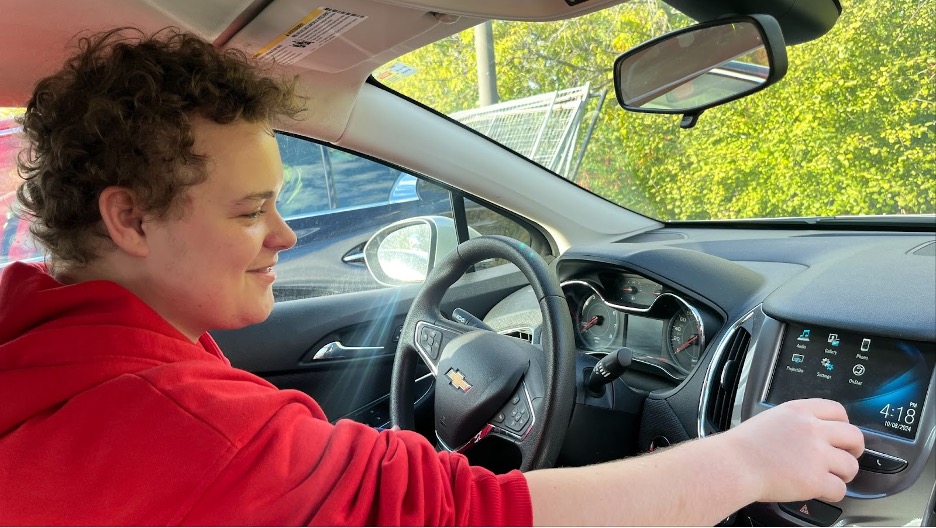With gas prices fluctuating wildly in recent years, students have been feeling it at the pump and some are having a hard time managing their budgets.
Finley McHattie, 18, drives to school almost every day from his parents’ house in Stittsville to Carleton University. On a good day, it takes him 30 minutes, but often, with traffic, it takes him longer.
McHattie worries the ever-changing gas prices prevents him from keeping a consistent budget, especially regarding student expenses.
“If I really plan out my university and how I’m spending, knowing how much I’m going to be spending on transportation is a must for me,” McHattie said. “When [gas prices] fluctuate from 10-20 cents a litre on a week-by-week basis, it’s near impossible to get a set number for what I’ll be spending on gas.
McHattie counts gas as a school expense, and he expresses his concern at maintaining his academic standing with working more hours due to these rising costs.
“Having a job and going to school at the same time is already difficult, so when you add the extra pressure of [gas] becoming that much more expensive, you feel a bit urged to work more,” McHattie said. “I don’t want it to affect my education, but it might.”
Jean-Thomas Bernard says the volatility of gas prices is influenced by many global economic factors, such as how the world economy is behaving, as well as how it is expected to behave in the future.
“There are a few key countries that have a monopoly on oil, such as Saudi Arabia, Venezuela, Russia, and what they decide to do with it can determine gas prices all over the world,” the uOttawa economics professor told Capital Current.
The price of gas has seen significant changes just in the past year.
Although global issues have an immense effect, Bernard notes that there are political reasons within Canada that also contribute to fluctuating prices at the pump.
“If Pierre Poilievre were to be elected, gas prices would be lowered as he would like to remove the carbon tax,” Bernard said.
During a speech criticizing the current carbon tax in Canada, Pierre Poilievre said “This crazy carbon tax obsession of Justin Trudeau and the NDP is an existential threat to our economy and our way of life.”
In 2024, the federal carbon price is currently set at $65 per ton of CO₂ emissions, which translates to about 14-15 cents per litre of gasoline. Eliminating the tax would reduce that additional cost, offering relief at the pump.
Bernard has a different view on this tax’s impact. “I think this would be a major step backwards, as it took so long to implement this tax in the first place, with the issue even going up to the Supreme Court,” he added.
Bernard says that there are things Ottawa citizens can do in their day-to-day life choices that can have an impact, such as the use of public transit.
“One issue is that because of the troubles with public transportation like the O-Train, lots of people are not willing to take it,” Bernard said. “This causes more people to use gas, and it drives prices up.”
In 2021, 77 per cent of commuters reported using some sort of car, whereas only 11 per cent used on public transit, according to the Statistics Canada Census. This follows a trend of OC Transpo ridership declining ever since the early 2010s.
“It concerns me because it makes me think we are moving backwards, and I have no clue how exactly to get back to a point where we’re moving forwards again," Bernard said.

McHattie says that the lengthy OC Transpo trip from Stittsville to Carleton is not an efficient option for him.
"I feel like I'm in a spot where I don't have a lot of other choices that don't involve me waking up at 5 a.m.," McHattie chuckled. "The roundtrip from Carleton and back is three hours with traffic, and I can't do that reasonably with my early lectures."
McHattie has considered carpooling, but being in his first-year, he hasn't yet found a group to coordinate travelling with.
Despite the gas price volatility, McHattie says he is grateful to have a way of getting around.
“I’m just fortunate to have a driver’s license and a car that I can use, and to have some way of paying for repairs and gas,” McHattie said. “But I don’t know of a better option right now. I feel like this is my reality right now.”




